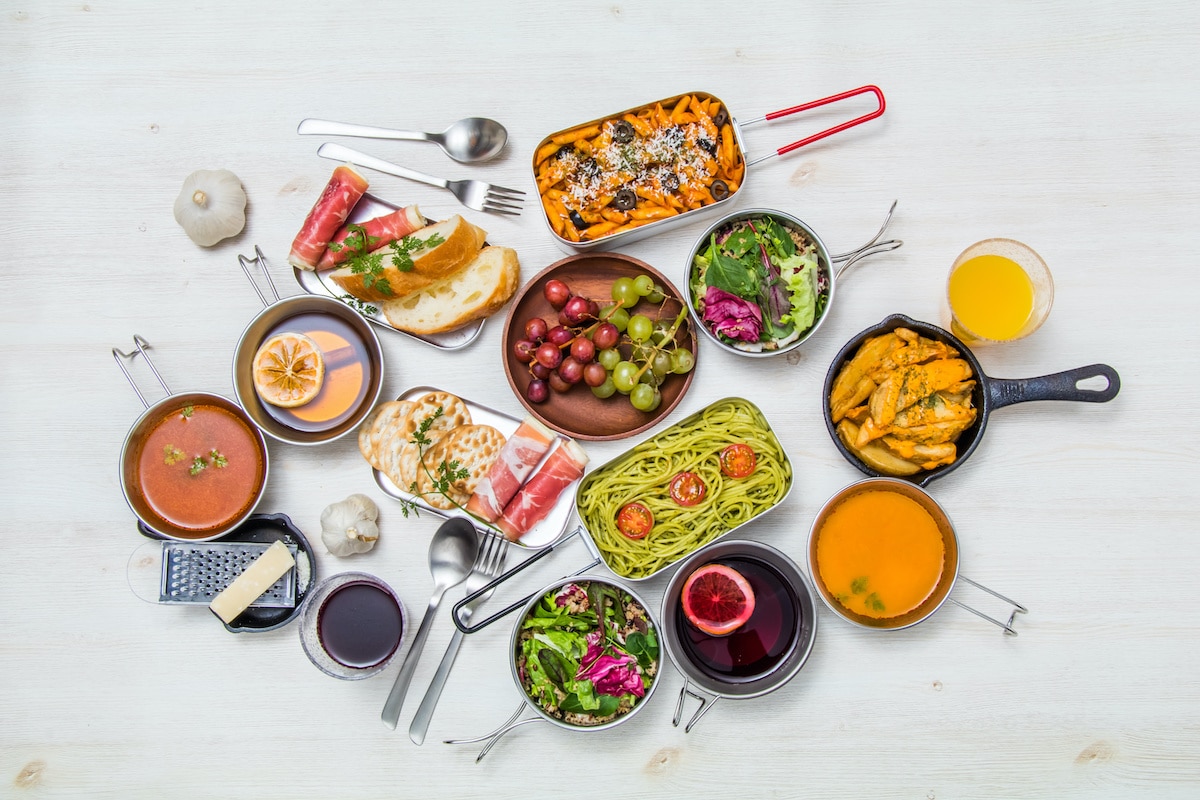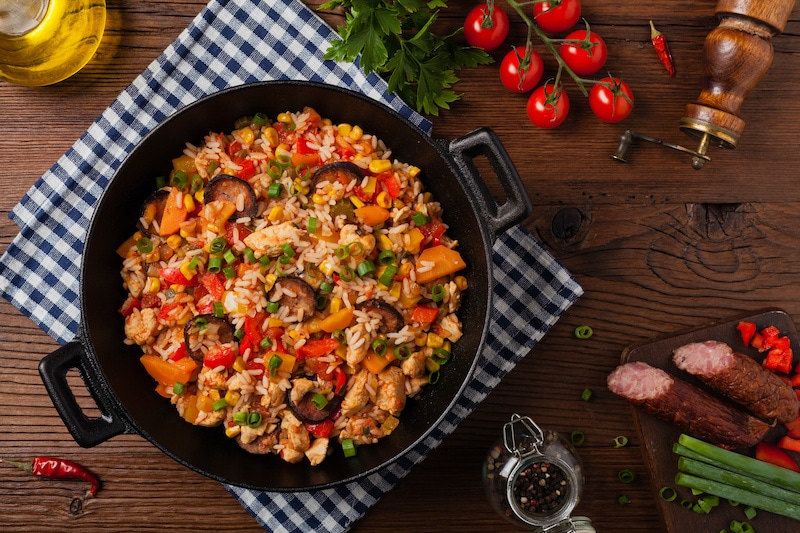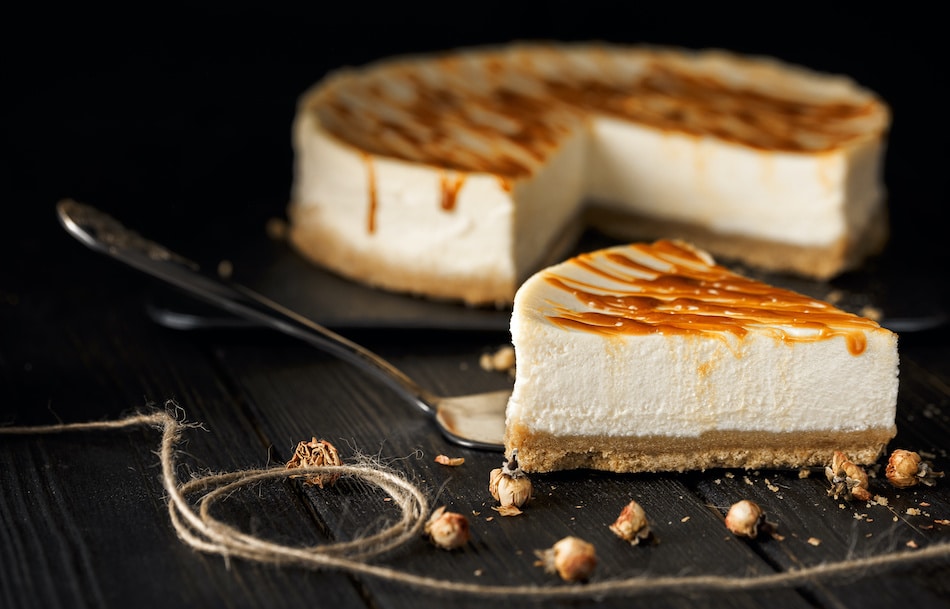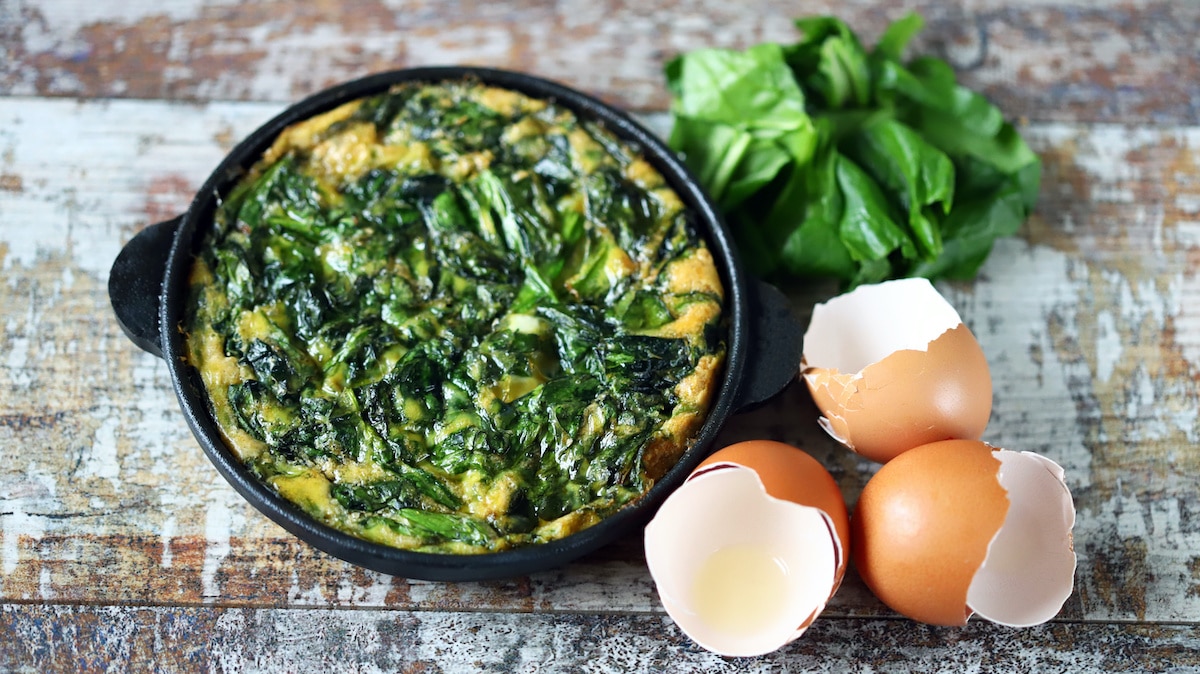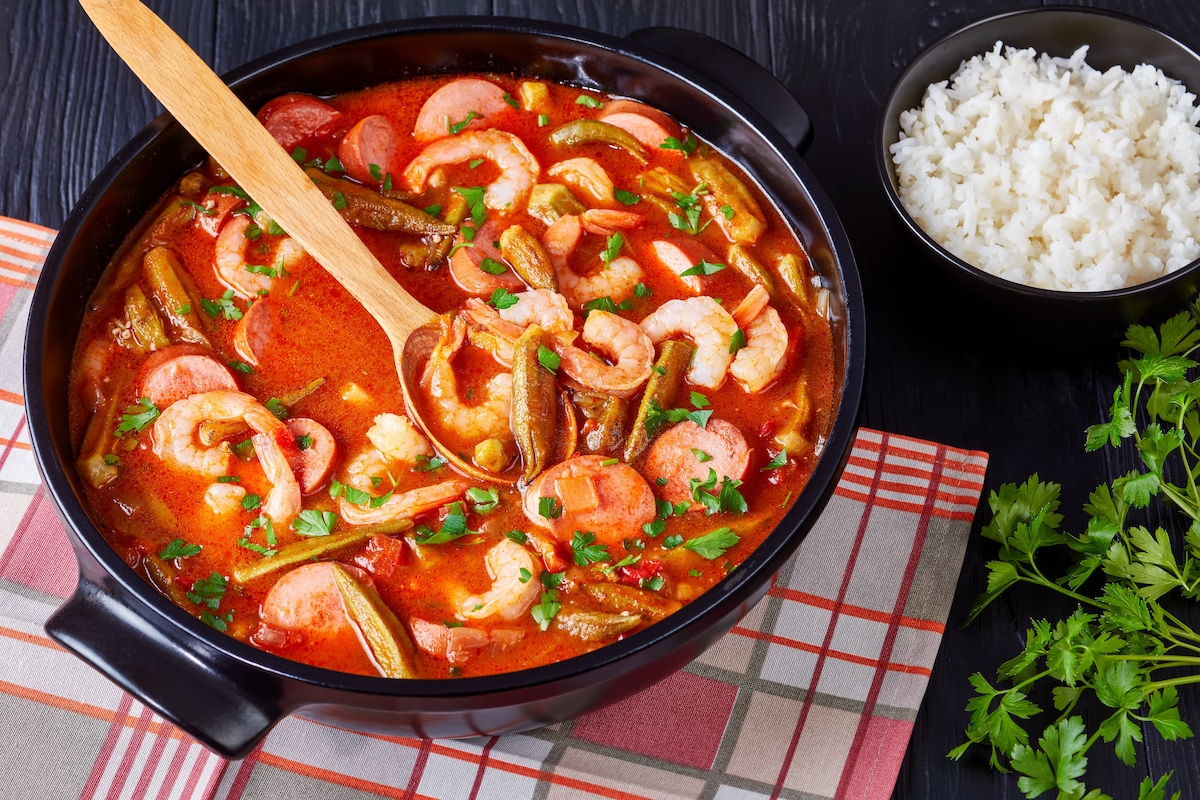Food is food regardless of where it is prepared and where it is eaten, so why does the term “camping nutrition” exist? Camping nutrition is meant for people who love the great outdoors like hikers, backpackers, and mountain climbers. These activities require a lot of energy, which is why a camper’s diet is different from a home diet.
What We'll Cover
When you are at home, you have access to a large kitchen, including your refrigerator and freezer, so you can plan our meals one day at a time. Campers, however, don’t have the luxury of a large selection, so they must plan their camping kitchen checklist ahead of time so you have everything for the best portable camping kitchen.
If you are planning a 5-day hiking tour, you need to make preparations for what you’ll eat from day 1 through day 5. You want to pack as many food items as possible, and it must be limited to what you can carry. Therefore, you may have to apply the Pareto’s 80-20 ratio to your food supplies to determine 20 percent of your diet that provides 80 percent of your nutritional and energy needs. Based on this explanation, here are some considerations for planning your camping meals.
Weight
Each time we travel, we usually want to pack a lot of food, but we also try to keep the weight as low as possible. This is why we will advise you to consider brining more dried or dehydrated camping foods. Water content makes food heavier; by drying up your foods, you’ll be able to pack more of it, while also keeping the total weight low.
Fuel Usage
During your camping trip, you’ll need to cook your meals and boil water. The quantity of fuel you need may depend on your type of stove and the elevation of your camping location.
A 100g butane fuel canister should be enough for two people on a 5-day trip. To minimize your fuel usage, you must prepare your meals and beverages like coffee or tea at the same time as your food.
Access to Potable Water
Will your camp location have access to water, or is it a dry camp? This should determine the amount of water you’ll need to bring and is one of the most important decisions that you must make.
Snacks
Snacks are a constant source of energy throughout the day. Hiking requires a lot of energy, so it is recommended to pack as many snacks as you can. You can also forage for food while hiking, which can be a lot of fun.
Pack Foods That Are Calorically Dense
Because you’ll be engaging in physical activities every day, you’ll need foods that are more calorically dense than you may be used to eating. This way, you will be able to strike a great balance between consuming high calories and carrying low weight. Consider foods like chocolate, peanut butter, and olive oil, as they contain a lot of calories.
Although the amount of calories people burn depends on their activity level, age, weight, and size, hikers tend to burn between 3,000 and 6,000 calories on average.
Proper Food Storage Is Necessary
To prevent pests and bears, you must store food properly. A good way is to pack foods that you can easily store in locations that do not require refrigeration.
Learn to Leave No Trace
It is important to keep your campground clean and organized. When you’re finished cooking or eating, find a way to dispose of your trash. Take it a step further by disposing trash that may have been left behind by others if possible.
Elements Of Camping Nutrition
Having plenty of water during the duration of your camping trip is crucial in order to prevent hydration. Because you are going to be hiking for several days, you’ll need to drink more water than you are used to drinking at home. If the adventure is in hot weather, or the climate in the location is hot, you’ll need pack even more water.
Make sure to research the campsite before arriving to determine if there will be access to water during the trip. This way, you won’t have to pack as much of your own water and will be able to include other items you want to bring instead.
It is recommended to take at least two cups of water or other fluids every hour during your trip to stay hydrated. Don’t wait to drink water until you feel thirsty. Your body may be dehydrated, and you won’t feel thirsty.
Vegetables and Grains
When stocking your camping pantry, you need carbohydrates such as vegetables and grains because carbohydrates are the body’s main source of energy. Additionally, grains and vegetables contain a large amount of iron and vitamin B to keep you healthy during your trip. These types of foods are easy to prepare; after a long day of hiking and returning to the tent, these types of food won’t require much time or energy.
Proteins
Proteins are important to include on your trip so that your worn-out muscles can repair. Proteins contain vitamins and minerals, and good choices to include are beans or meat.
Fruits
Fruits contain a lot of minerals, so consider bringing oranges, bananas, apples, watermelon, or your own favorites. Fruits like apples and bananas can serve as snacks that you can eat on the go during hiking or daytime activities.
Fish, Meat, and Poultry
Because you need a lot of calcium for strong bones and muscles, the best sources of calcium are poultry, meat, and fish. Eggs include calcium as well, but it can be difficult to preserve raw eggs in the outdoors. Make sure to bring spices on your camping trip for these items, and pack them in camping spice containers for best results.
Healthy Fats
Healthy fats are a good source of energy; when the body’s energy reserve gets low, and the rate of consumption of carbohydrates is not encouraging, the body will convert stored fats into energy. Additionally, healthy fats boost your health by ensuring that your systems are functioning optimally. You can get healthy fats from foods like chocolate, sausage, cocoa, candies, sauce mixes, margarine, and vegetable oil.
How to Keep Your Drinks Cold
If you plan to bring cold drinks or items that require refrigeration on your trip, make sure to bring a camping cooler or camping refrigerator. There are also natural ways to keep drinks cold.
Bury Your Drinks
You can try this anywhere with moist soil or sand. Bury each drink as soon as you get there. The sand will keep them cool for as long as they stay there. If you had bring frozen drinks, the sand will retain the temperature. The deeper they go into the sand, the colder they will be.
Wrap Them in a Wet Towel
Another idea is to wrap your drinks in a wet towel, blanket, or any material that retains moisture. You will be amazed at how cold your drinks will be when you want to drink them. This is one of the oldest techniques for keeping drinks cold.
Winter Cooking Tips
If you plan to go camping during the winter, cooking will be more difficult. Here are some tips to make cooking easier and to help you minimize fuel use.
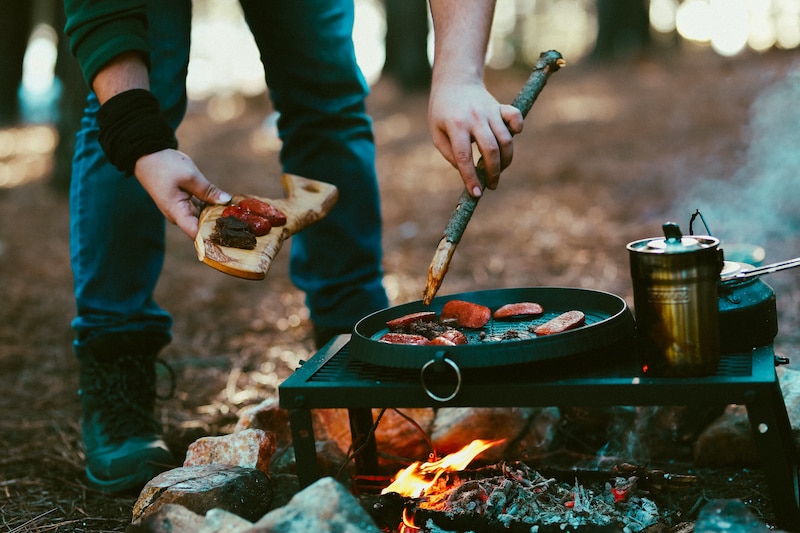
- Always cook before it gets dark: If you are lucky enough to get back to your tent before dark, prepare your dinner while it is still light out. This way, you won’t need to use a flashlight or other source of light.
- Cover your pot while cooking: If you leave the pot open, the cold air will slow it down, thereby making you burn more fuel.
- Shield your stove: After covering your pot, you also need to shield your stove from the wind as it prevents the stove from burning to capacity. When you shield your stove from the wind, your food will cook faster.
- Cook the quantity you can eat at once: Always cook the quantity of food that you and your group can finish in order to avoid waste.
- Don’t cook in your tent: During the winter, it is always tempting to cook in the tent for two reasons: you want to heat the tent, and you also want to protect your stove from the cold wind. Do not cook in your tent and always consider safety first.
- Monitor your stove while cooking: Anything can happen while cooking in the outdoors. The wind can blow your pot off. Snow can defrost unevenly underneath the stove and cause it to tilt, pouring out its content. When you are there to monitor your stove, you can prevent accidents from happening. Take turns in monitoring the stove if needed.
If you’re too tired to cook, don’t cook. Eat the foods or meals that are ready to eat. If you do have to cook, however, don’t decide to rest on your back as you can easily fall asleep. The great outdoors is a fun opportunity, but cooking and preparation needs to be taken seriously.
The responses below are not provided, commissioned, reviewed, approved, or otherwise endorsed by any financial entity or advertiser. It is not the advertiser’s responsibility to ensure all posts and/or questions are answered.
